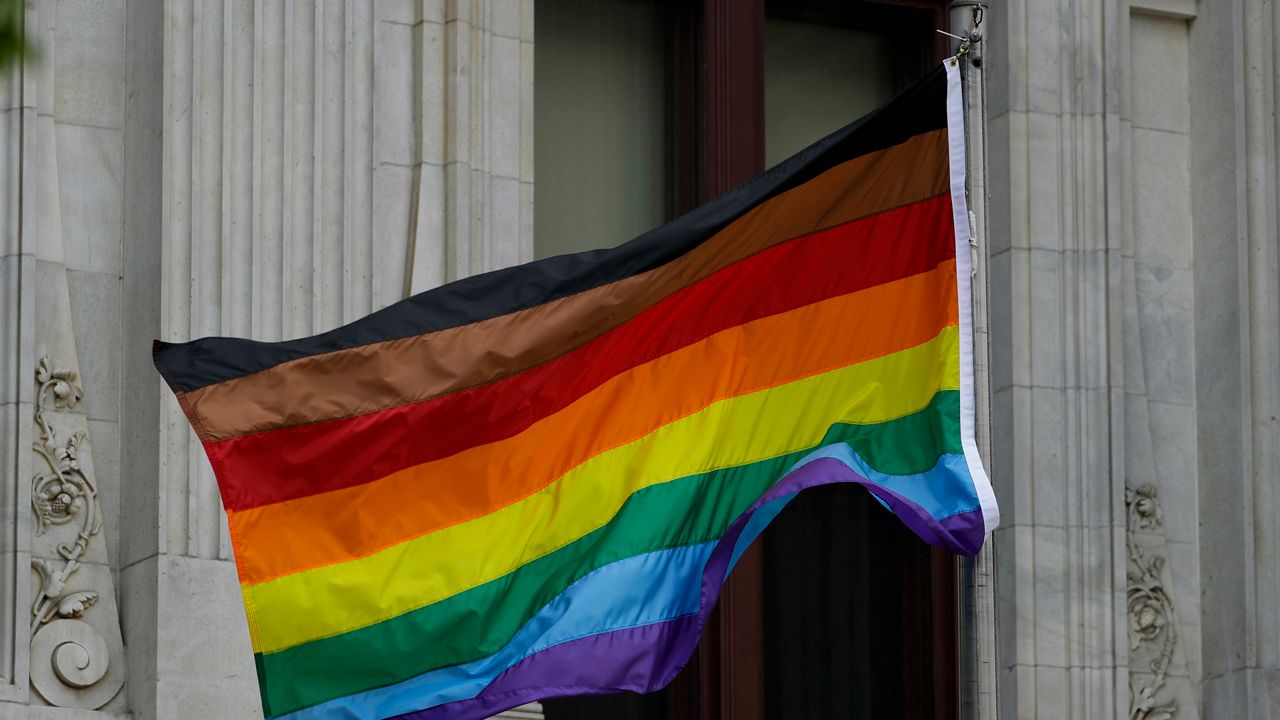A new report from the Victory Fund released this week found a record number of LGBTQ+ candidates are running in this year’s midterm elections even as a spate of anti-inclusive legislation has been introduced in states across the country.
According to the political action committee, which aims to elect more LGBTQ candidates to office, 1,065 openly LGBTQ+ candidates ran throughout this year’s primary and midterm elections, a nearly 6% increase from 2020.
A total of 678 LGBTQ+ candidates will be on the ballot come Nov. 8, as a record-breaking 63.7% of the original candidates won their primaries. And for the first time in its three-decade history, the Victory Fund says LGBTQ+ candidates are running across all 50 states.
“As politicians in state legislatures and on school boards levied unprecedented attacks on our community and our kids, LGBTQ leaders responded, running for office in record numbers,” Mayor Annise Parker, president & CEO of LGBTQ Victory Fund, wrote in a statement. “We saw more LGBTQ candidates of color, trans candidates, nonbinary candidates and bisexual candidates than in any other election year. And in November, more voters than ever before will receive a ballot with the name of an LGBTQ candidate.”
The state with the most LGBTQ+ candidates, by a large majority, is California, per Victory Fund data. A total of 178 non-cisgender or heterosexual individuals ran for down-ballot positions in the state this year. Of the 464 candidates endorsed by the Victory Fund nationwide, 89 were in California – and 77 will appear on the Nov. 8 ballot, with the other dozen having either lost primary races or otherwise dropped out.
One of those candidates is Robert Garcia, a Democrat running to represent California’s 42nd Congressional District. The current mayor of Long Beach, Garcia would be the first LGBTQ immigrant elected to Congress, should he win his race; the 44-year-old was born in Lima and came to the United States with his mother from Peru at five years old.
Garcia’s website lists strengthening federal protections for LGBTQ+ Americans as one of his campaign priorities, though it is far down on the list, with the candidate writing that as mayor he “helped strengthen protections for the LGBTQ+ community by establishing trans-inclusive health care coverage in the city, increased access to STD checks and treatments, and facilitated a more welcoming community citywide” and that he would fight for similar rights in Congress.
Garcia is likely to win his election, as the voters in the area – which is a new district representing much of southeastern Los Angeles – are registered as Democrats by a slight margin.
Across the country in New York is a closer House race, where two openly gay candidates are competing for the 3rd Congressional District seat – believed to be the first matchup between two openly gay men for a House seat in U.S. history.
Republican financier George Devolder-Santos is facing off against Democrat Robert Zimmerman in a race the Cook Political Report rates as a solid toss-up. The Victory Fund endorsed Zimmerman, a communications executive and longtime Democratic operative.
Zimmerman lists promoting LGBTQ+ equality as one of his top priorities, and writes on his website: “Growing up as a closeted gay kid on Long Island in the ‘70’s, I felt like I didn’t have a voice until I discovered political activism.”
Santos, however, does not mention his sexuality on his website, nor does he list support for LGBTQ+ equality as one of his primary issues. Instead, Santos’ priorities are inflation, safety, taxes, energy and pandemic preparedness.
Either candidate who wins will be the first LGBTQ+ individual to represent Long Island in Congress.
Despite the historic nature of the amount of LGBTQ+ people running for office, there have also been record amounts of legislation introduced targeting transgender individuals and other members of the LGBTQ+ community.
According to the Human Rights Campaign, a leading civil rights organization, around 300 pieces of anti-LGBTQ+ legislation have been introduced this year alone, many of which targeted transgender children either by denying them gender-affirming care or banning them from playing sports with their preferred gender.
The Human Rights Campaign also condemned the Republican party’s midterm platform, writing that the “Commitment to America” agenda is “playing politics with American lives – including LGBTQ+ lives and transgender lives in particular.”
“The politicians and judges stripping away our reproductive rights, undermining access to the ballot, and attacking LGBTQ+ families will not stop unless the majority of Americans who oppose these dangerous policies stand up and make themselves heard this November,” Human Rights Campaign director of Strategic Initiatives Justin Unga wrote of the platform. “It’s critical that LGBTQ+ voters and our allies turn out to the polls to elect pro-equality, pro-choice, pro-democracy leaders who will advance our country forward - not drag us backwards.”
The statement was released in September, several months after the Supreme Court overturned Roe v. Wade, a case that protected the federal right to abortion.
In a concurring opinion, conservative Justice Clarence Thomas wrote the nation’s highest court should reconsider all of its “substantive due process precedents, including Griswold, Lawrence, and Obergefell,” three cases that concern Americans’ right to privacy, specifically the ability of married couples to buy contraception, that prohibitions or punishments for same-sex relationships are unconstitutional and to guarantee that same-sex marriages are constitutional, respectively.
"In future cases, we should reconsider all of this Court’s substantive due process precedents, including Griswold, Lawrence, and Obergefell,” Thomas wrote. “Because any substantive due process decision is ‘demonstrably erroneous’ … we have a duty to ‘correct the error’ established in those precedents.”
The move prompted the House of Representatives to pass a bill that would protect the right to same-sex marriage nationwide, but it has yet to be brought to a vote in the evenly-divided Senate – and its future would most certainly be in jeopardy should Republicans take the majority in the Senate come November.



